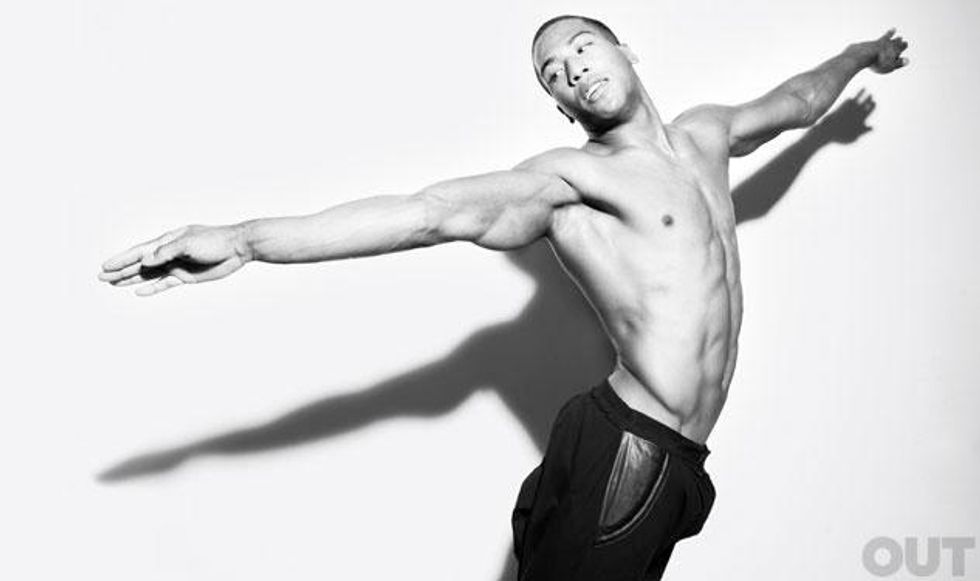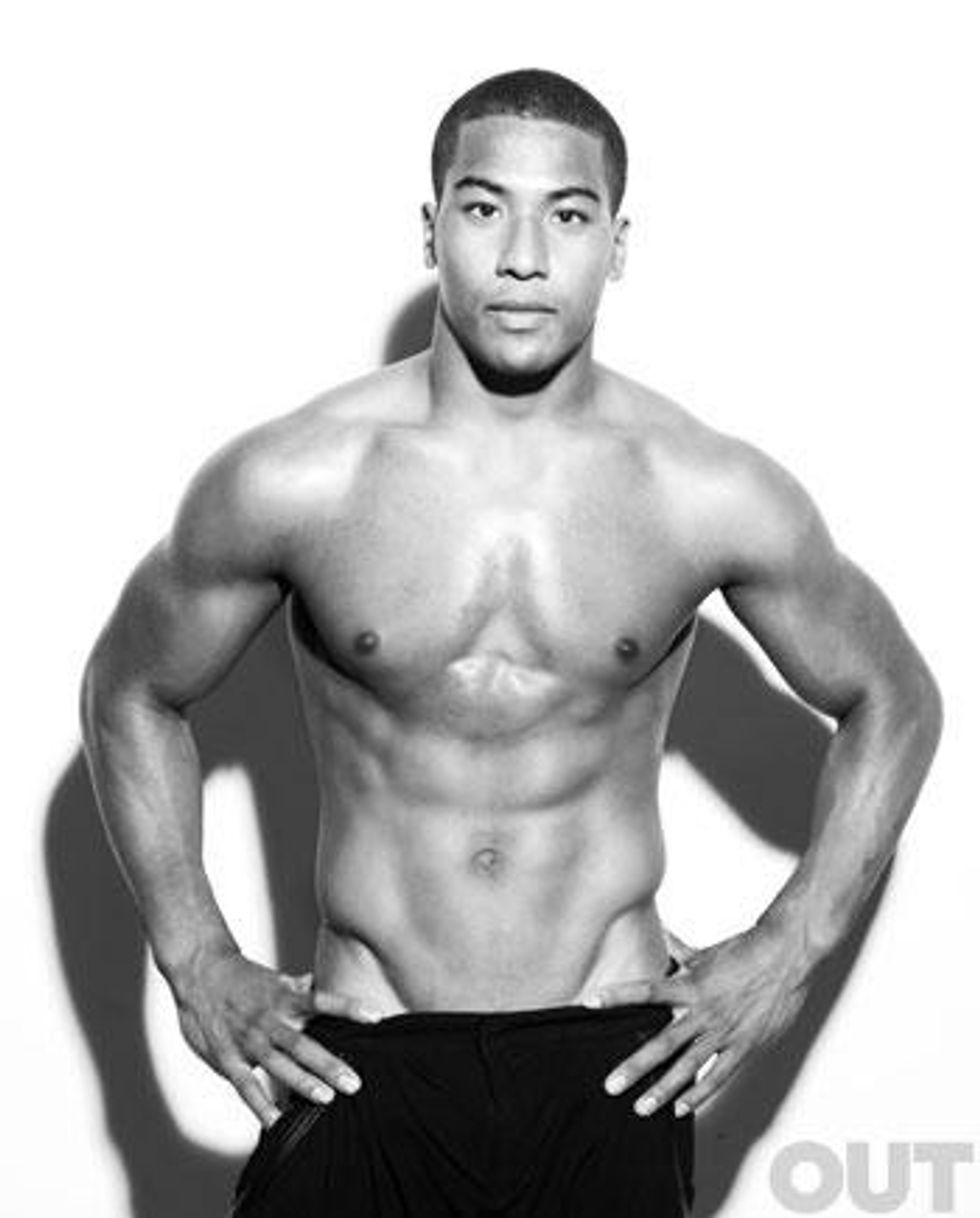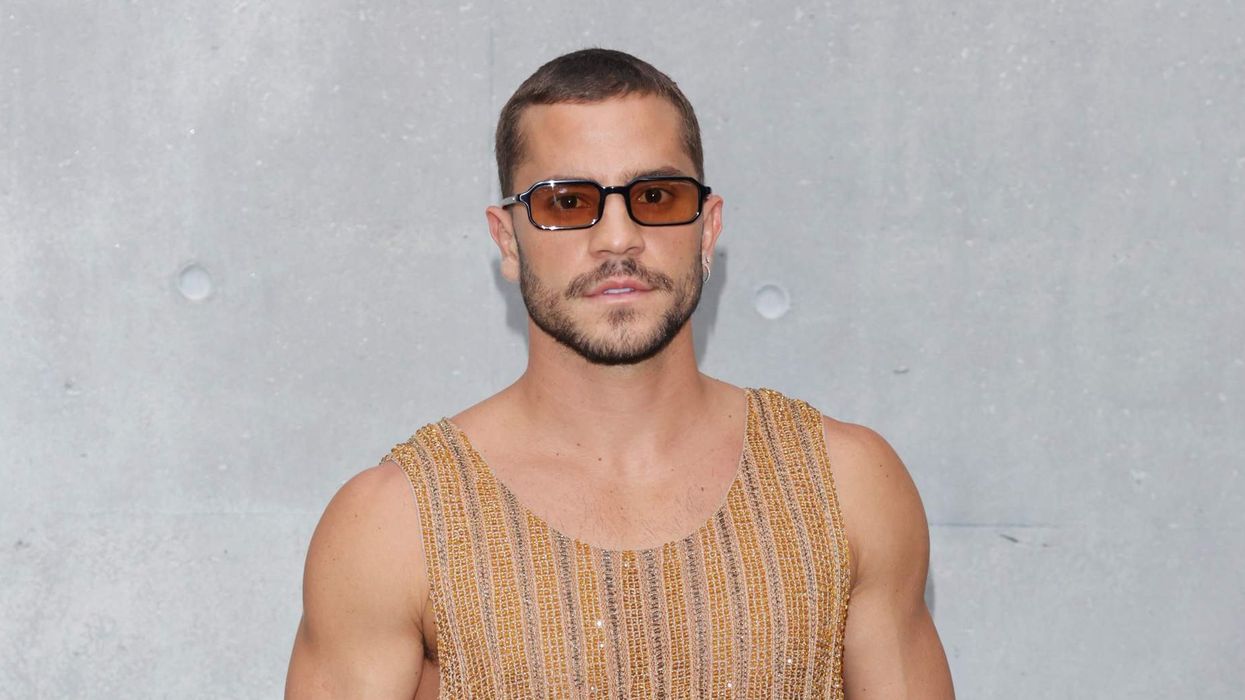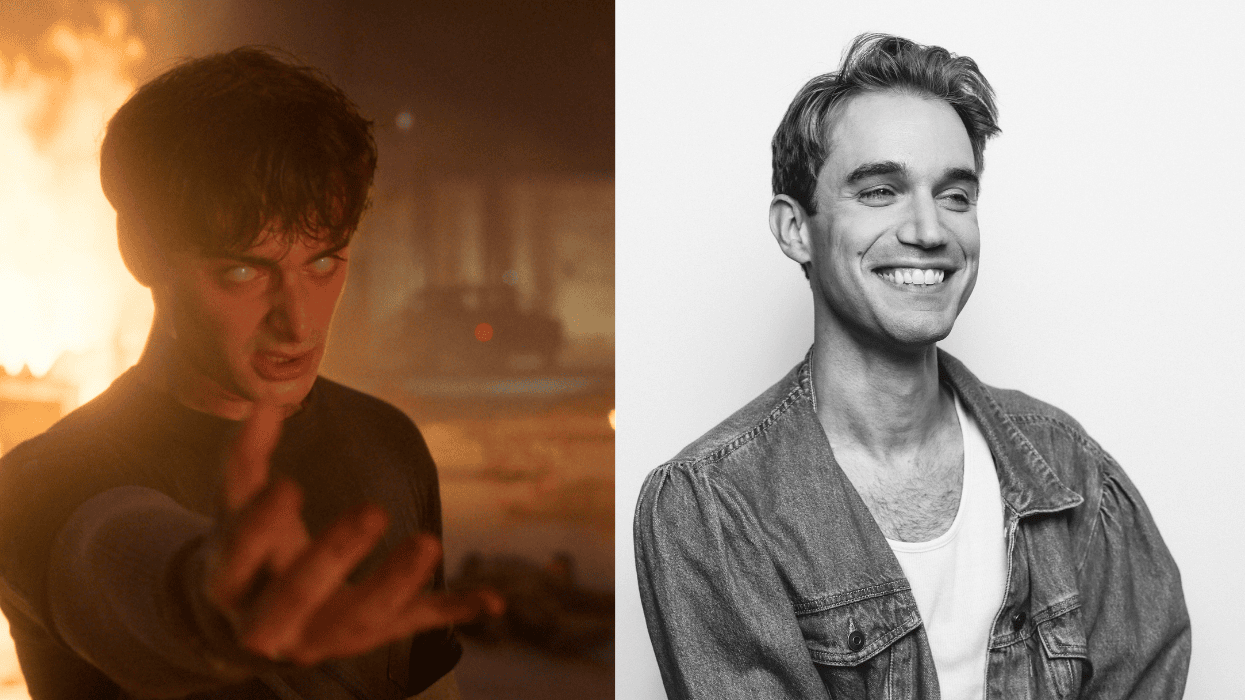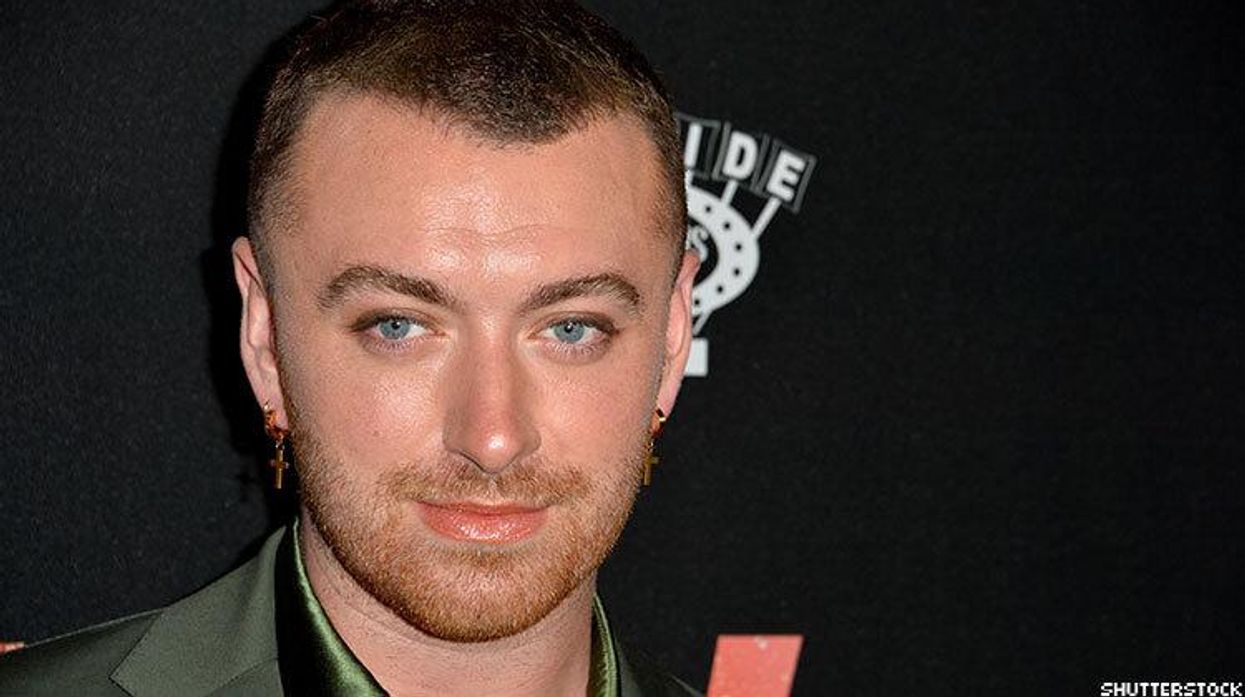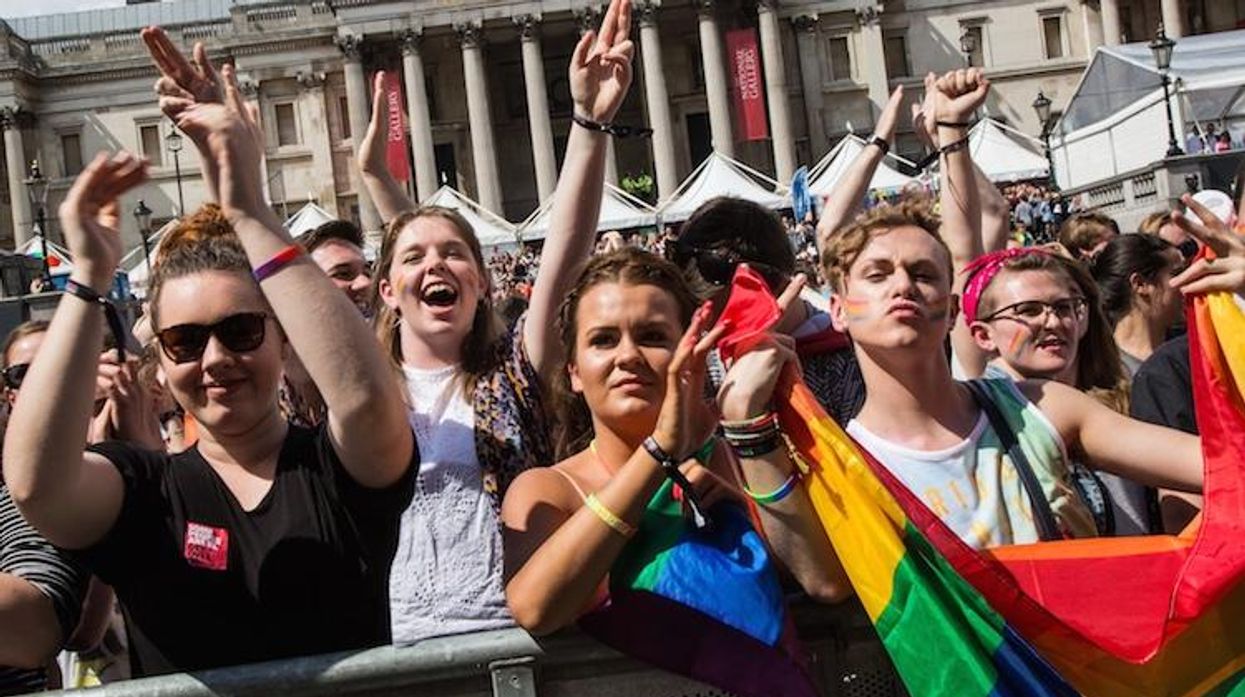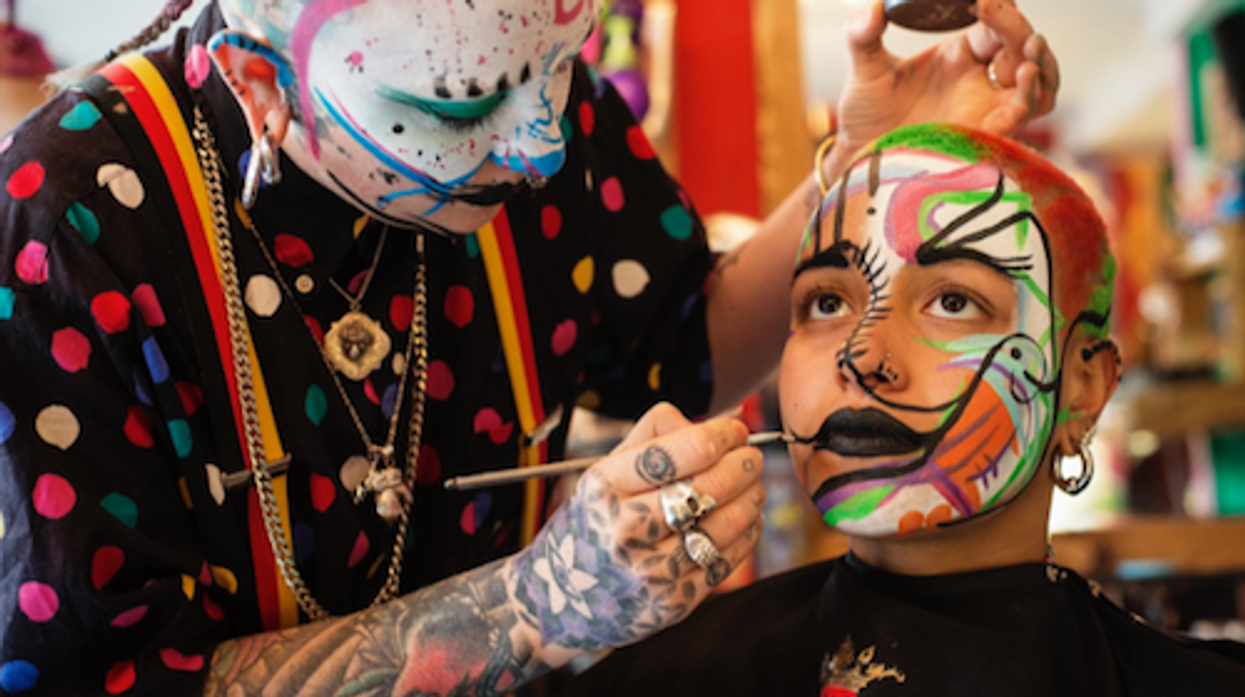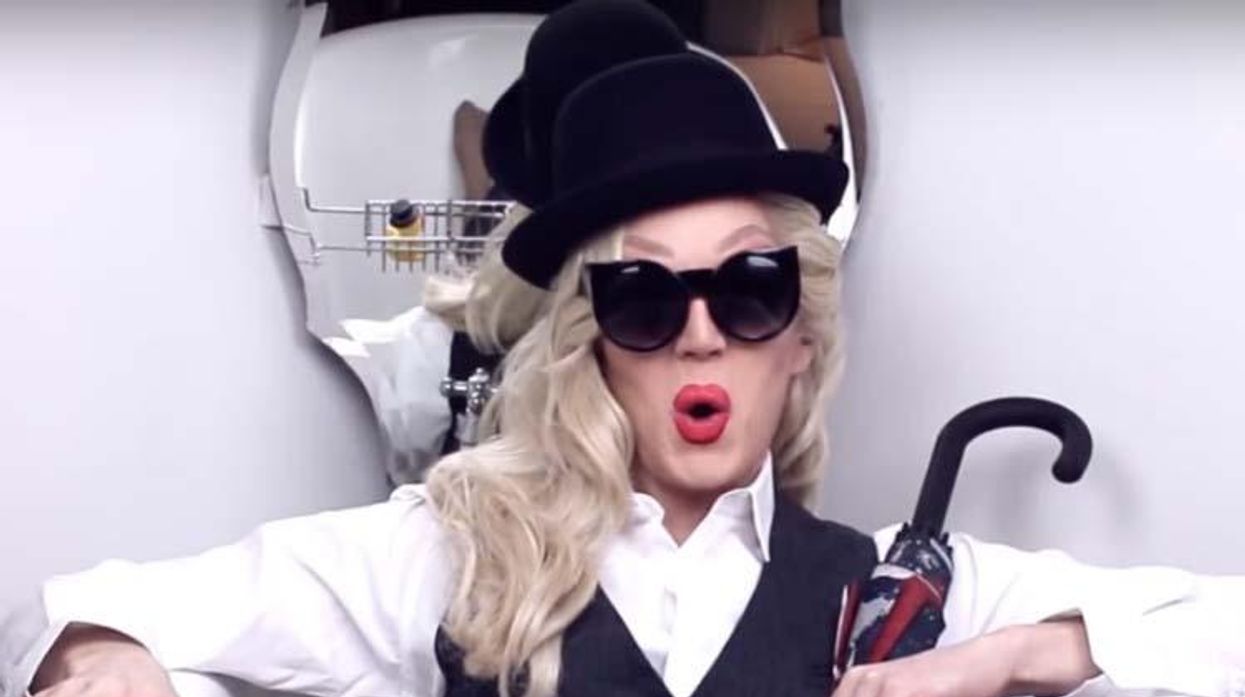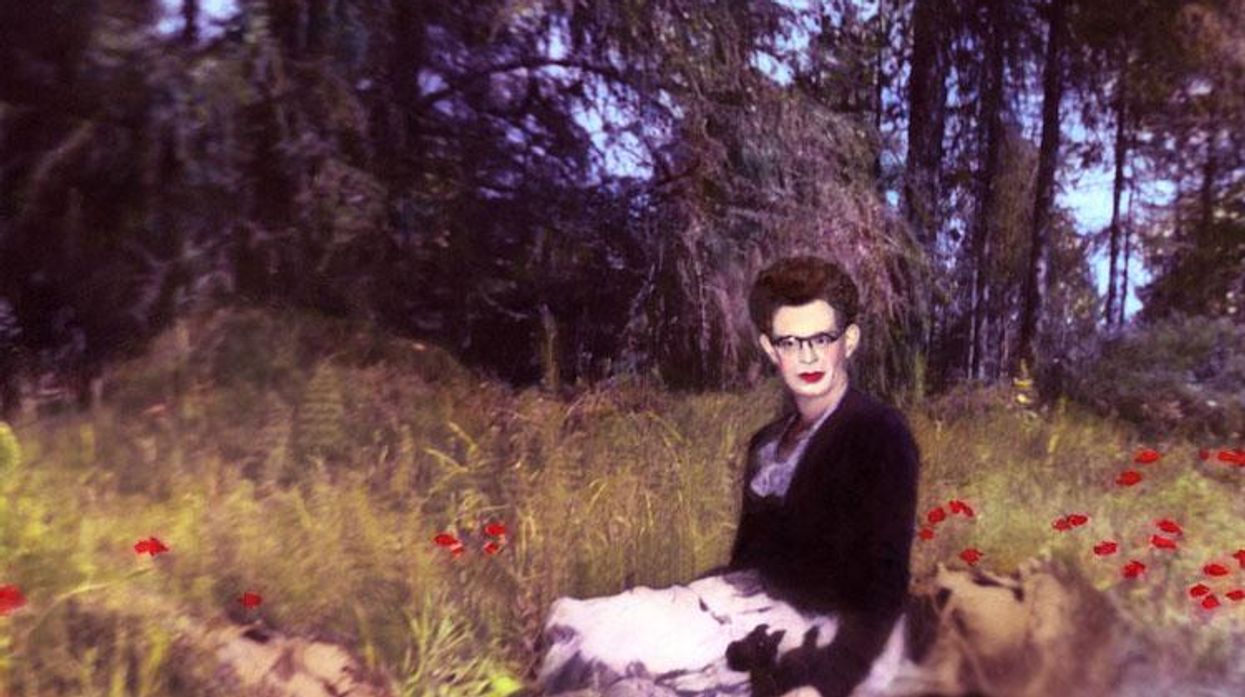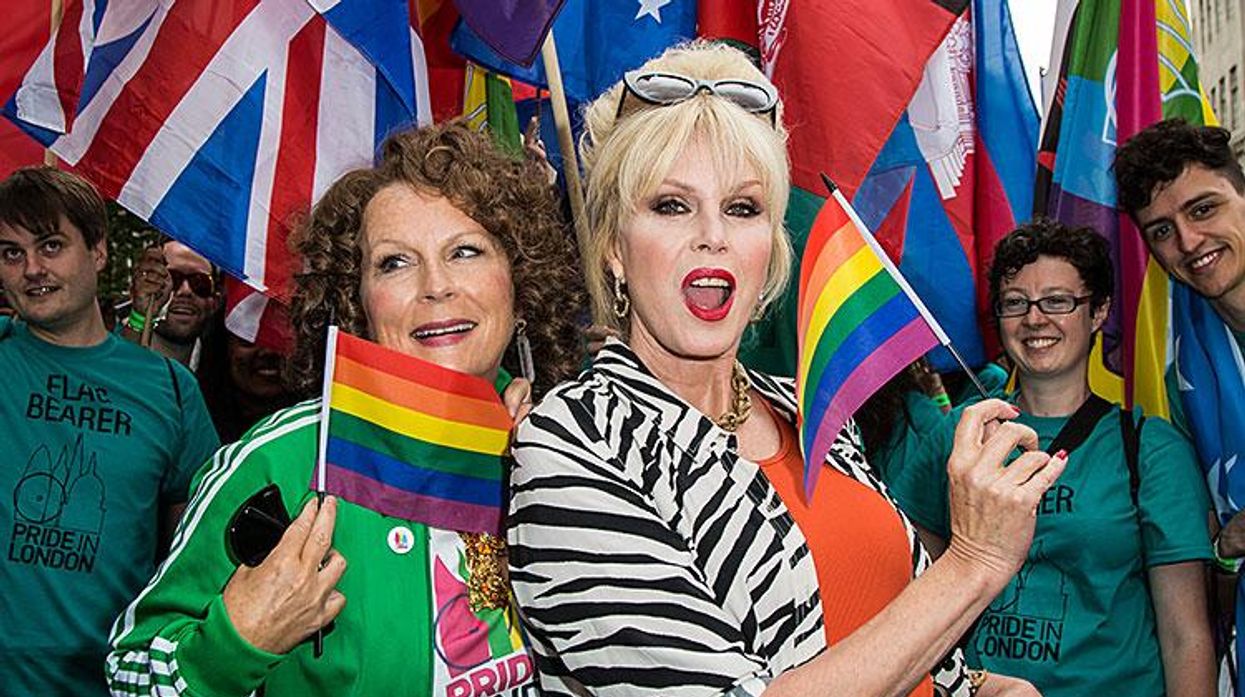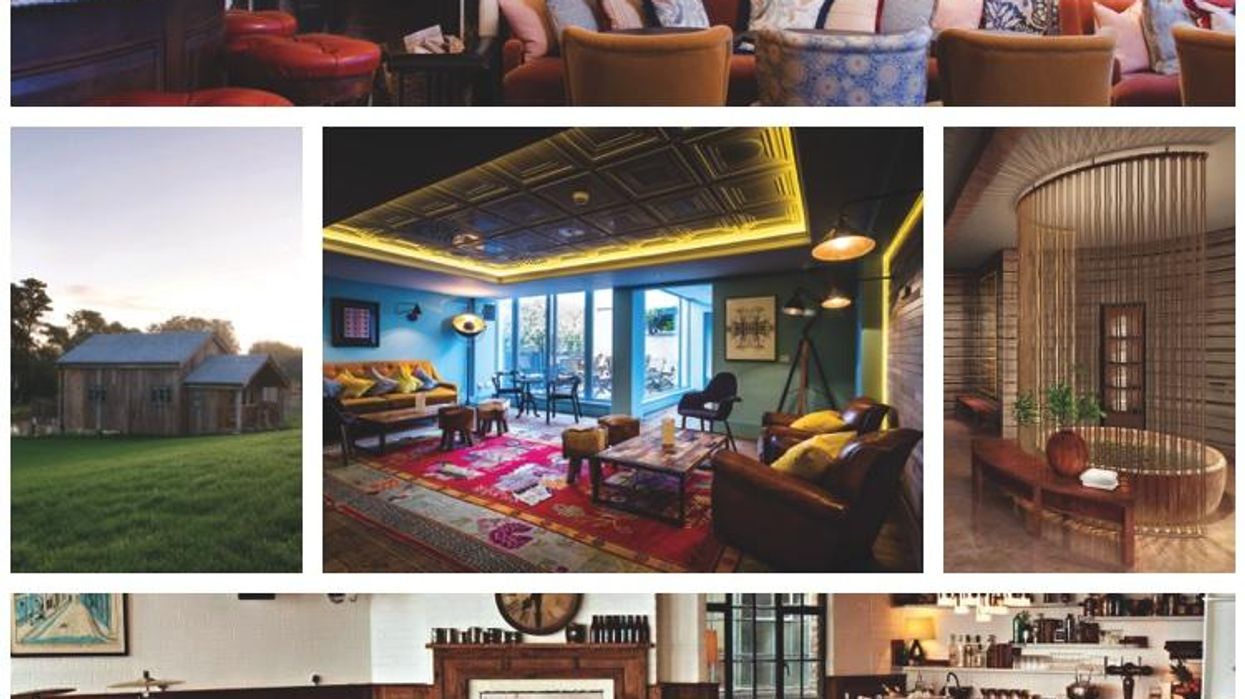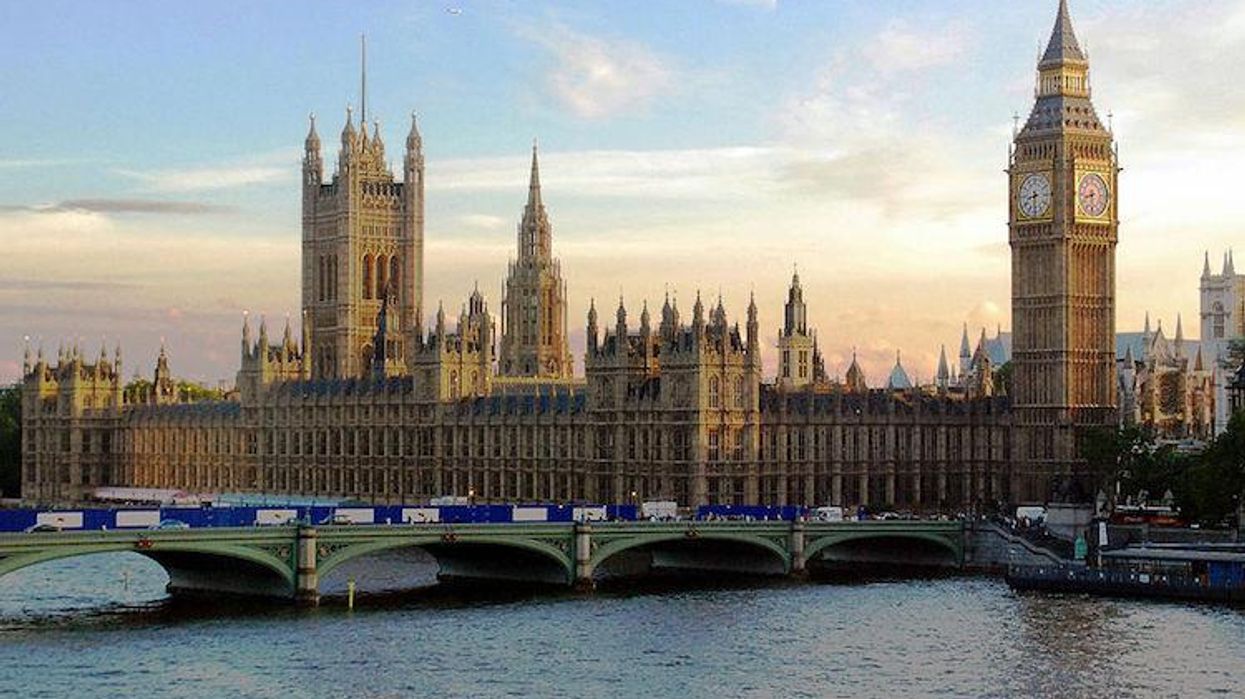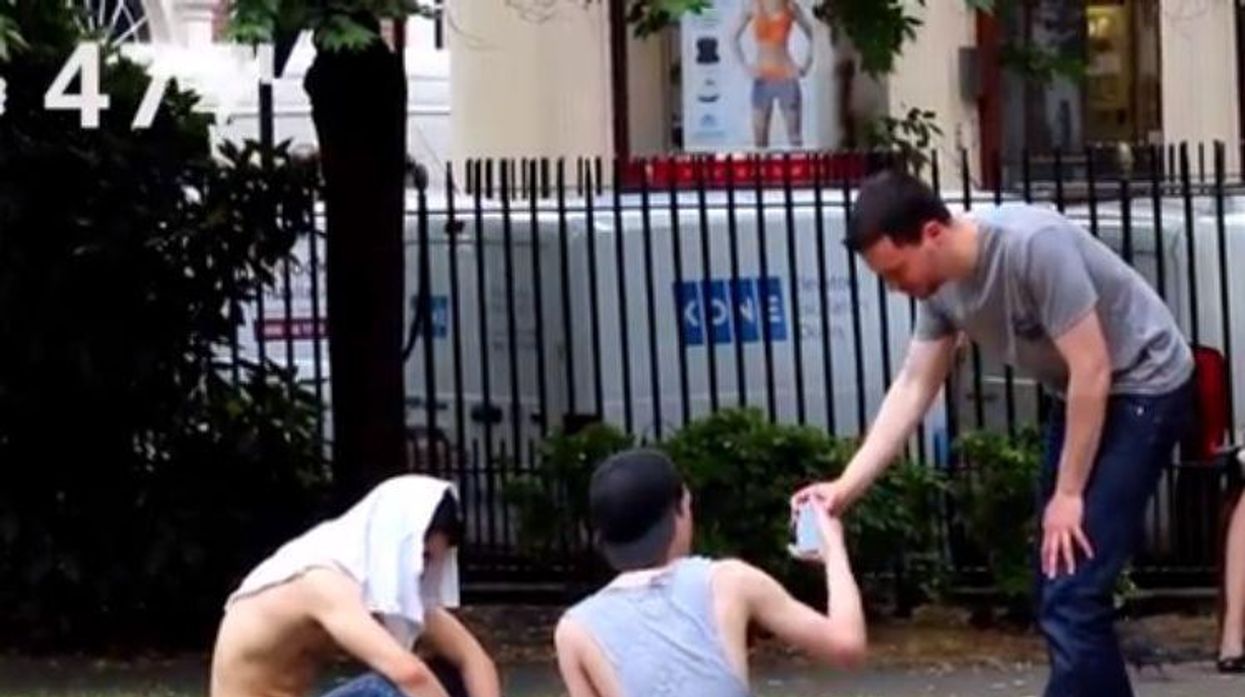Photography by Randall Slavin
When someone decides to come out to his family, he typically only has to do it once. But for an athlete, it may need to happen twice. That's because an athlete's teammates are the people he spends more time with--training, practicing, competing--and who often know him more intimately. So coming out to this second family can cause even more anxiety. Luckily, for 22-year-old Josh Dixon, an elite male gymnast who grew up in San Jose, Calif., and studied at Stanford University, he found easy acceptance.
"We're from the Bay Area; this sort of stuff is totally normal," he explains. "I had 18 close friends I could count on. I also got close to the girls team. It's a small, tight-knit community."
Unlike many other recent grads, Dixon didn't have to worry what he would do post-college: He's competing for one of the six spots on the U.S. men's Olympic gymnastics team this week. If he makes it, he would also be the first openly gay gymnast to compete for the American team in its history.
On paper, Dixon would appear to have had a tough path to where he is today. He's half-black and half-Japanese, and was adopted, along with his two sisters, by a mixed-race couple. But Dixon appears to be an amazingly well-adjusted guy.
Asked if he ever felt discrimination, he says he would get questions about his skin color and eye shape. "Some girl would ask, and then be like, 'Oh, you're like Tiger Woods!' But I never had a conflict of identity or anything like that. I'm so proud to be multiracial," he says. "It's never been a thing in our family. I don't need to have a relationship with my birthmother. Oh, please. Dumb."
His discovery of his sexuality was a longer journey due to the intensity of his dedication to his sport, which he started at age seven. "It was literally go to school, do your homework, go to practice, relax, and try to hang out with friends on the weekend," Dixon says. "Being gay was something that I hadn't figured out or experienced before. I think it was something that I didn't want to take on. My plate was full already. But college was definitely about learning and growing."
Dixon says there wasn't a trigger, but he was forced to start thinking about relationships when a close friend from his childhood, who was attending school in the Midwest, visited him at Stanford and came out to him during their sophomore year. Later, he dated another athlete at school--"It takes a super-competitive 'freak' to understand another super-competitive guy," he explains--but is currently single. He says he doesn't have time to dedicate to a relationship.
Recently, an older former college teammate visited and urged him to speak out. "He told me, 'Now that you're out to your close friends, you're in a very powerful position to break down barriers, especially in gymnastics,' " Dixon explains. "I realized I have an obligation, a responsibility to say, 'It's OK to be gay in our sport.' Ultimately, it's about your gymnastics, whether you're worthy to be on the team or in the sport."
He's aware that some may feel less inclined to be open, since there's a perception that gymnastics is more flamboyant in general. "That's just part of our sport; it's artistic," he points out. "It's supposed to be aesthetically pleasing; we're supposed to make it pretty and flowing. And you wear these tight, tight clothes. But it's also the most-watched sport in the Olympic games."
Ultimately, it seems Dixon will land on his feet, no matter what life throws at him. As for what happens in the next weeks and months, he sums it up shrewdly: "It's just gymnastics."



